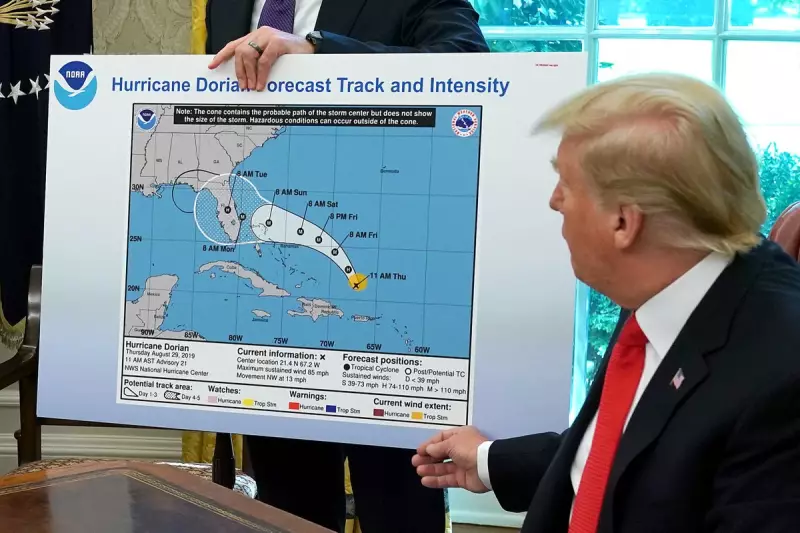
A federal investigation has found that senior officials at the National Oceanic and Atmospheric Administration (NOAA) likely violated scientific integrity policies during the infamous "Sharpiegate" scandal, where the agency appeared to defend former President Donald Trump's inaccurate claims about Hurricane Dorian.
The Controversy That Sparked Sharpiegate
The scandal erupted in September 2019 when President Trump displayed a doctored hurricane map in the Oval Office that appeared to extend Dorian's projected path into Alabama - a claim the National Weather Service had already refuted. The bizarre incident, which involved the apparent use of a black marker to alter the map, became known as "Sharpiegate."
NOAA's Questionable Response
Under pressure from the Commerce Department, NOAA issued an unsigned statement contradicting its own scientists and supporting Trump's erroneous Alabama claim. The statement, which came during a hurricane emergency, caused outrage among meteorologists and raised serious concerns about political interference in scientific agencies.
The newly released investigation by NOAA's acting chief scientist concludes that the agency's actions "damaged NOAA's reputation for scientific integrity" and created "an appearance of politicization." While the report doesn't name specific individuals, it confirms that senior NOAA leaders violated agency policies by issuing the misleading statement.
Fallout and Ongoing Concerns
The Sharpiegate scandal became emblematic of the Trump administration's fraught relationship with scientific facts. Critics argue it demonstrated a willingness to undermine expert opinion for political purposes. The investigation's findings have reignited debates about protecting scientific agencies from political pressure.
NOAA has stated it's implementing new training programs to prevent similar incidents, but many in the scientific community remain concerned about the long-term impacts on public trust in weather forecasting and climate science.






